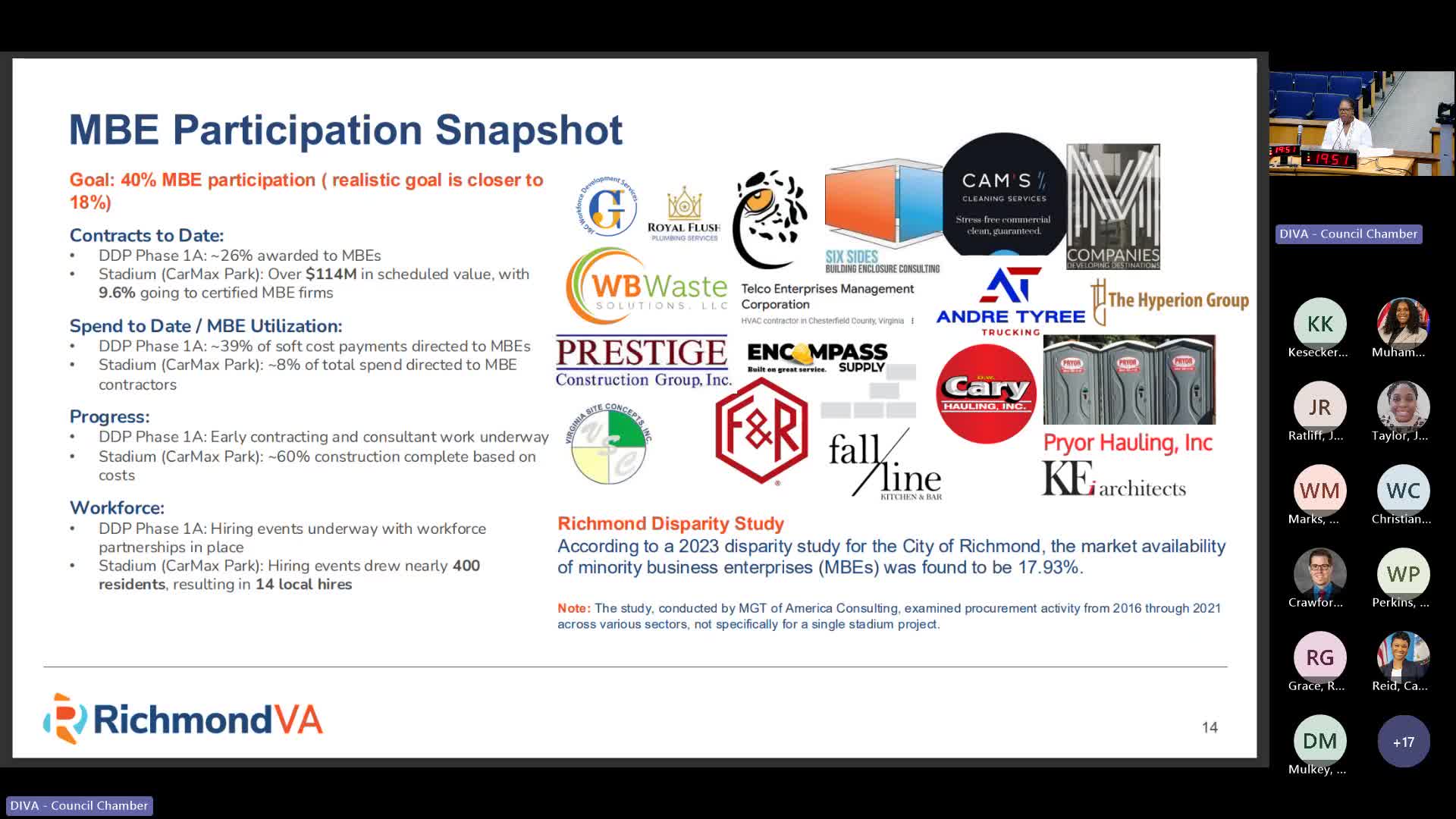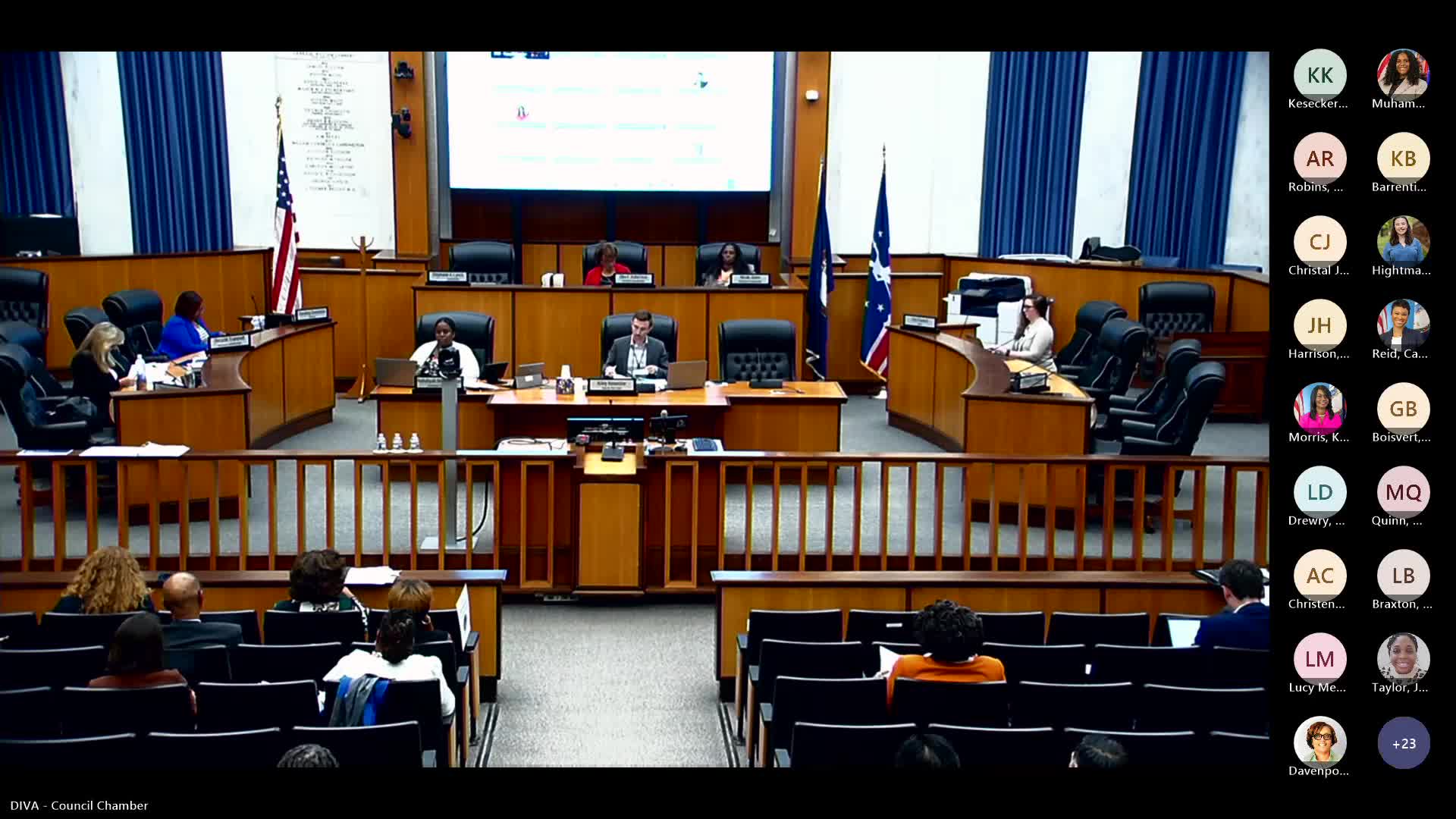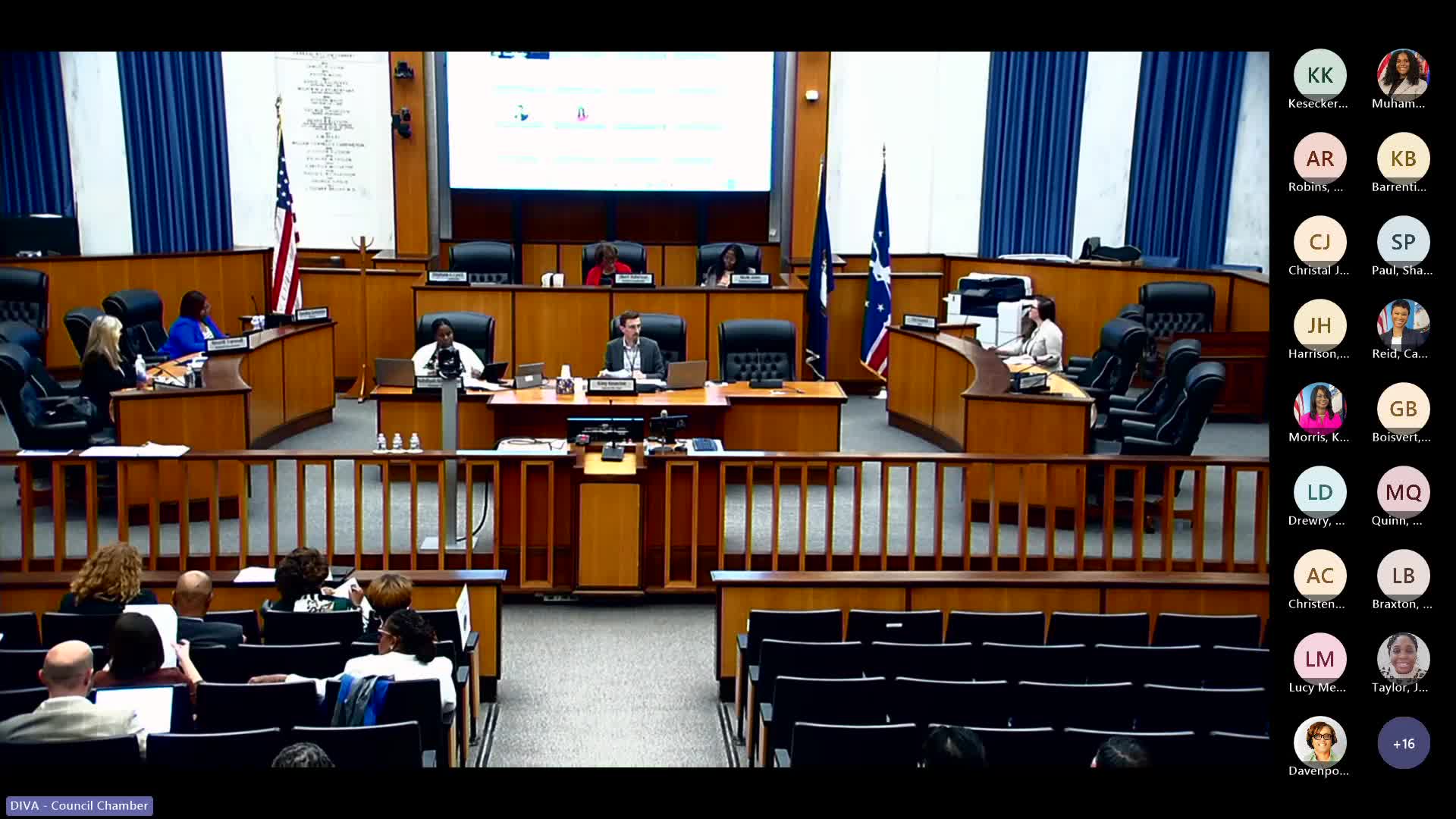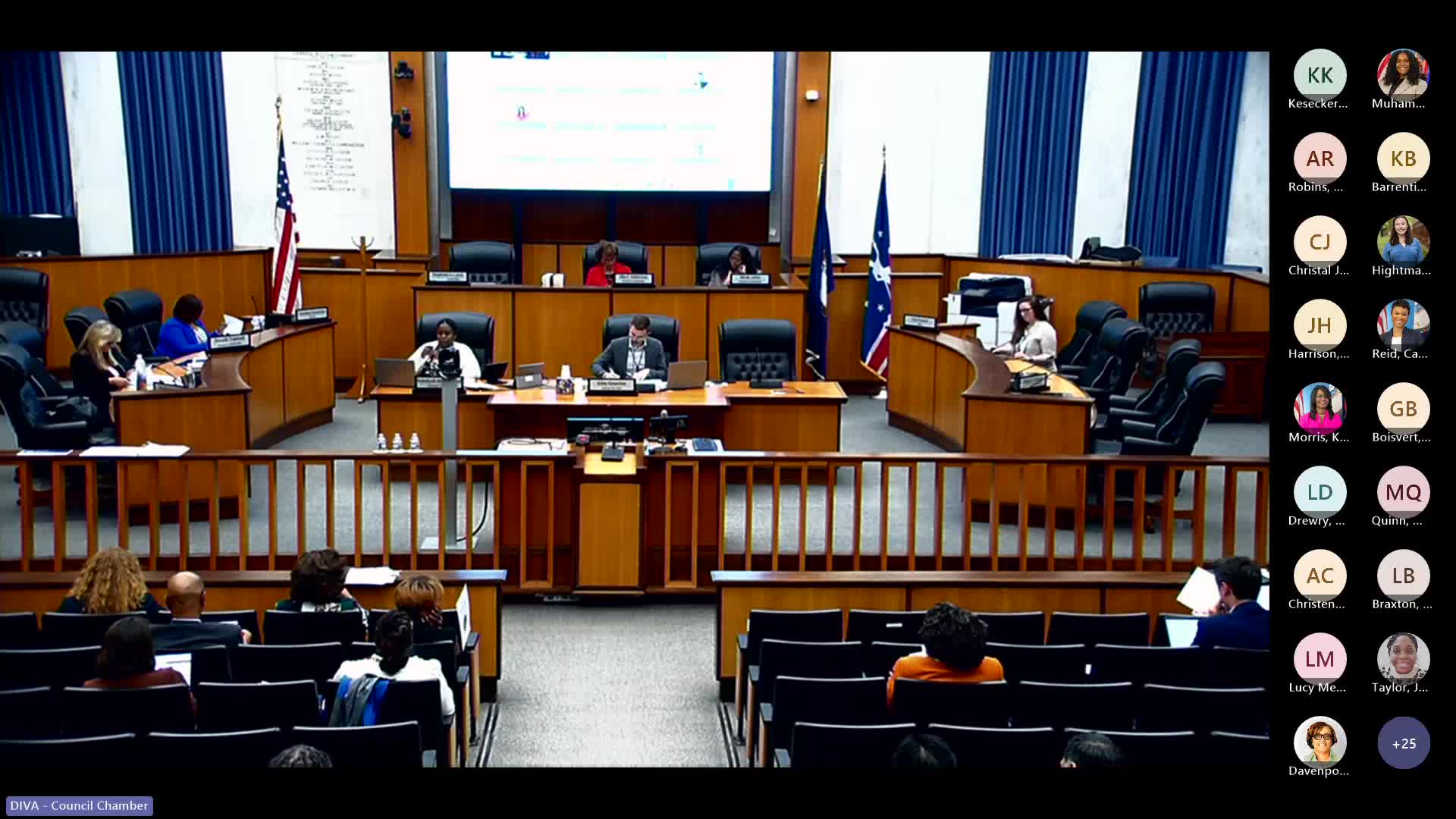Article not found
This article is no longer available. But don't worry—we've gathered other articles that discuss the same topic.

Economic development staff: Diamond District stadium on track for early 2026 opening; mixed-use buildout to continue through 2032

Committee endorses release of 2023 disparity study, asks OMBD to implement recommendations

Committee forwards multiple budget and program ordinances to full council

